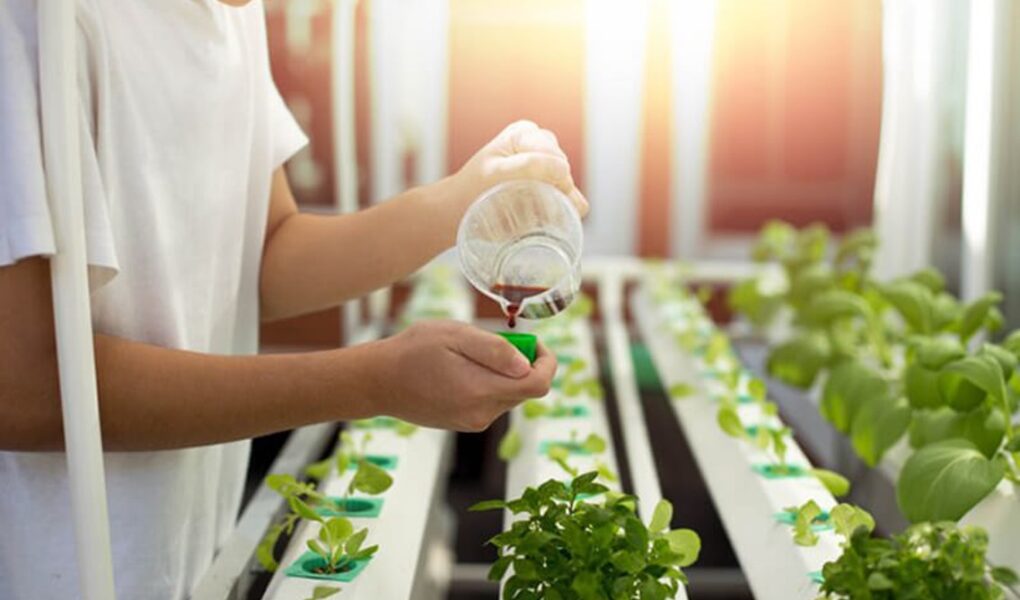In the world of modern agriculture, hydroponics has emerged as a revolutionary method of growing plants without soil. It’s a soil-free cultivation technique that relies on nutrient-rich water solutions to provide plants with a thriving environment necessary for their growth. As more growers shift towards sustainable practices, the demand for organic hydroponic nutrients is on the rise.
Understanding Hydroponics
Before we dive into the specifics of organic hydroponic nutrients, let’s grasp the basics of hydroponic cultivation. Traditional soil-based farming has been the norm for centuries, but hydroponics offers a more controlled and resource-efficient alternative. In hydroponics, produce is grown in a nutrient-dense water solution, allowing for precise control over the essential elements plants need for growth.
The Need for Nutrients
Plants, like all living organisms, require a variety of nutrients to grow and flourish. These include macronutrients such as phosphorus, nitrogen, and potassium, as well as micronutrients like iron and copper. In traditional soil-based farming, these nutrients are naturally present in the soil. However, in hydroponics, it’s necessary to manually introduce these elements into the water to ensure the plants receive optimal nutrition.
The Rise of Organic Hydroponic Nutrients
As the awareness of environmental sustainability grows, many hydroponic growers are making the switch to organic nutrients. Unlike synthetic alternatives, organic hydroponic nutrients are derived from natural sources and processed without the use of synthetic chemicals. This appeals to eco-conscious cultivators seeking a more sustainable and environmentally friendly approach to plant cultivation.
Environmental Sustainability
One of the primary advantages of organic hydroponic nutrients is their minimal impact on the environment. Traditional synthetic fertilisers can contribute to soil and water pollution, posing risks to ecosystems. Organic nutrients, derived from natural sources, are more environmentally friendly and promote sustainable farming practices.
Improved Plant Health
Organic hydroponic nutrients often contain a diverse range of micronutrients and beneficial compounds that contribute to overall plant health. These nutrients are released slowly, providing a steady and consistent supply to the plants. This can result in stronger, more resilient crops with increased resistance to diseases and pests.
Enhanced Flavour and Nutrient Content
Many advocates of organic hydroponics claim that the use of natural nutrients enhances the flavour and nutritional content of the harvested produce. The idea is that the plants, when provided with a diverse array of organic nutrients, develop a richer profile of vitamins, minerals, and antioxidants.
Fruits, vegetables, and herbs grown in organic hydroponic systems may exhibit a more vibrant flavour profile and potentially higher levels of beneficial compounds, contributing to a healthier and more enjoyable eating experience. This emphasis on quality over quantity aligns with the broader shift in agriculture towards sustainable practices and consumer demand for nutrient-dense, flavorful food.
Hydroponics Systems
Hydroponics offers unparalleled precision in nutrient delivery, allowing growers to tailor the conditions to meet the specific needs of each plant. Whether utilising nutrient film techniques, deep water culture, or aeroponics, hydroponic systems maximise resource efficiency by minimising water usage and eliminating the need for vast expanses of arable land. This method not only accelerates plant growth but also enables cultivation in non-arable regions.
As the popularity of hydroponics grows, the availability of hydroponic systems for sale has become increasingly common, enabling both seasoned growers and newcomers to access the tools needed to embark on this sustainable and high-yield cultivation journey.
Common Sources of Organic Hydroponic Nutrients
Compost teas are liquid solutions created by steeping compost in water. This process extracts the beneficial microorganisms and nutrients present in the compost. When used as a hydroponic nutrient, compost teas contribute to a healthy microbial ecosystem in the growing medium, promoting nutrient uptake and root development.
Seaweed is another common nutrient-rich natural source that has been used in agriculture for centuries. Seaweed extracts contain a variety of essential nutrients, growth hormones, and trace elements that benefit plant growth. When used in hydroponics, seaweed extracts can enhance plant vigour and resilience.
Conclusion
As the world of agriculture continues to evolve, the adoption of organic hydroponic nutrients represents a significant step towards sustainable and environmentally conscious plant cultivation. Whether you’re a seasoned hydroponic enthusiast or a beginner exploring new cultivation methods, incorporating organic hydroponic nutrients into your growing arsenal is a step towards a greener and more sustainable future.



